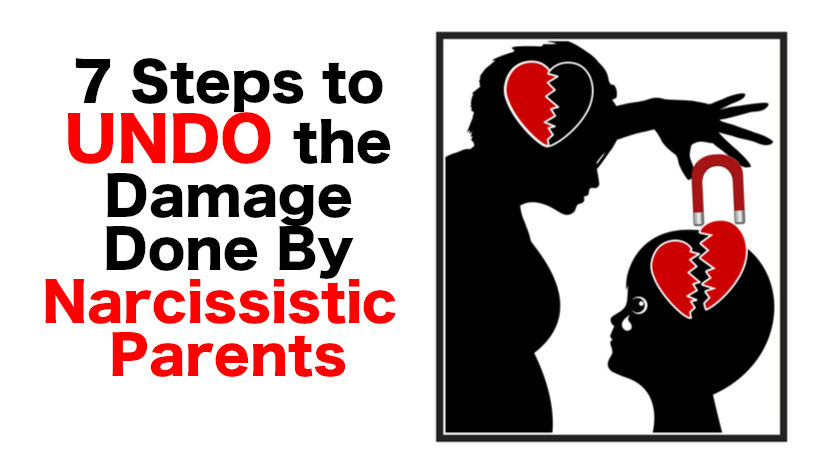The notion of having a perfect parent is a difficult one to let go of no matter what age you are. Having a parent who exhibits unhealthy narcissistic qualities can be quite emotionally and mentally damaging for a child, with the damage progressing well past one’s juvenile years. Dr. Suzanne Degges-White of Psychology Today presents destructive patterns a narcissistic parent may demonstrate and ways to heal.
Dr. Degges-White first outlines the typical behavior of a narcissistic parent. Gaslighting and manipulation techniques are common, accompanied by sentiments of possessiveness and dependence. Unfortunately, adulthood may be the only escape from such toxicity, but Dr. Degges-White suggests that healing is a “reclaiming” of your space that was once lost to a narcissistic parent. Here are 7 steps to take:
Accept their behavior.
Dr. Degges-White admits that acceptance is just one of the first steps to reclaiming your space, but it is an acceptance of the parent’s behavior that is crucial to moving forward. Coming to terms with an unlikeliness of change with a parent’s behavior places the choice to change on the parent, and not on the child. Children may often feel responsible for their parents’ emotions, a result of repeated manipulation or gaslighting. Accepting that a desire to change can only come from the parent is key to moving forward with healing.
Take responsibility for how you respond today.
Once you can accept that your parent is directly responsible for their own choices, it is now crucial to take responsibility for your own choices. With a narcissistic parent, children may have to calculate their responses to their parents, but as an adult, it is up to you to manage your own behaviors.
Establish clear boundaries.
As with all toxic relationships, establishing boundaries for parents is necessary to reclaim your space. A narcissistic parent may create a crisis or reward to gain the child’s attention and trust if the distance is put between the two. For your own mental health and emotional capacity, establishing limits and corresponding consequences to a parent who may cross it can allow you the time to heal.
Re-build lost relationships.
Under the guard of a narcissistic parent, external relationships may often be affected. The parent in question can be so possessive of their child that it isolates them from others, to over-project onto them. Dr. Degges-White recommends that once an adult, you should begin to invest time into re-building any relationships that the parent may have isolated you from as a child. In new relationships, one should take time into defining the relationship in one’s own perspective.
Seek out healthy relationships to replace toxic ones.
In the absence of a toxic relationship, you should seek out healthy and supportive ones. Establishing and prioritizing relationships that offer mutual respect and support assist in re-defining healthy relationships.
Set limits for yourself too.
Although it is important to create boundaries with a narcissistic parent, it is equally as important to set limits for yourself for how much time and energy you commit to the relationship.
Recognize you aren’t to blame.
A narcissistic parent may project certain shortcomings or failures onto a child throughout their childhood—however, you should recognize that you are not responsible for your parent’s happiness or self-worth. As an independent individual, it is important to acknowledge that you are not to blame for another person’s behavior.



